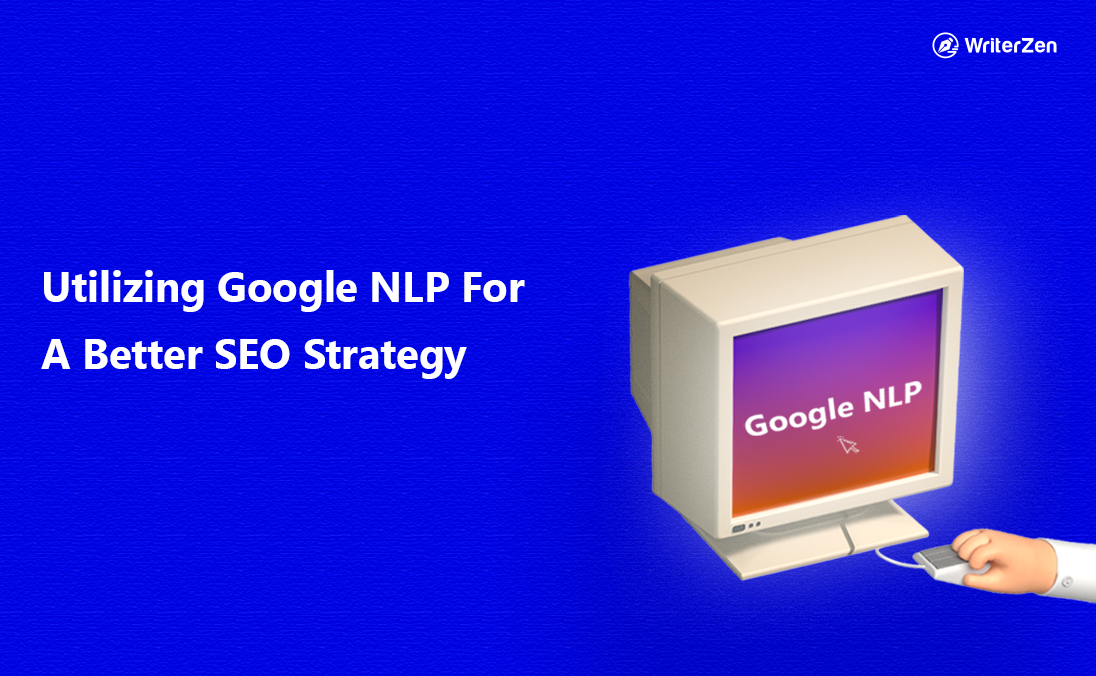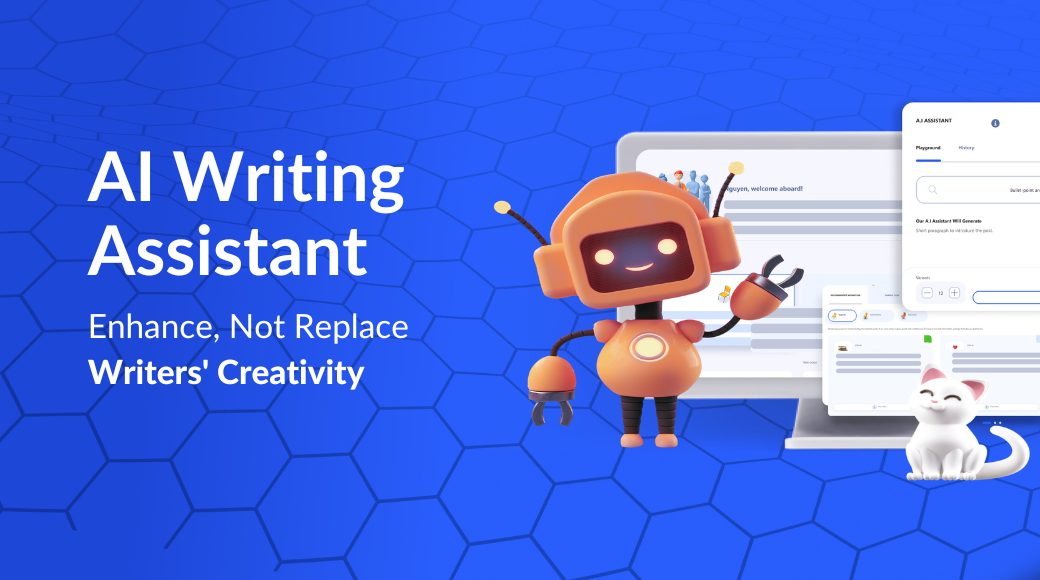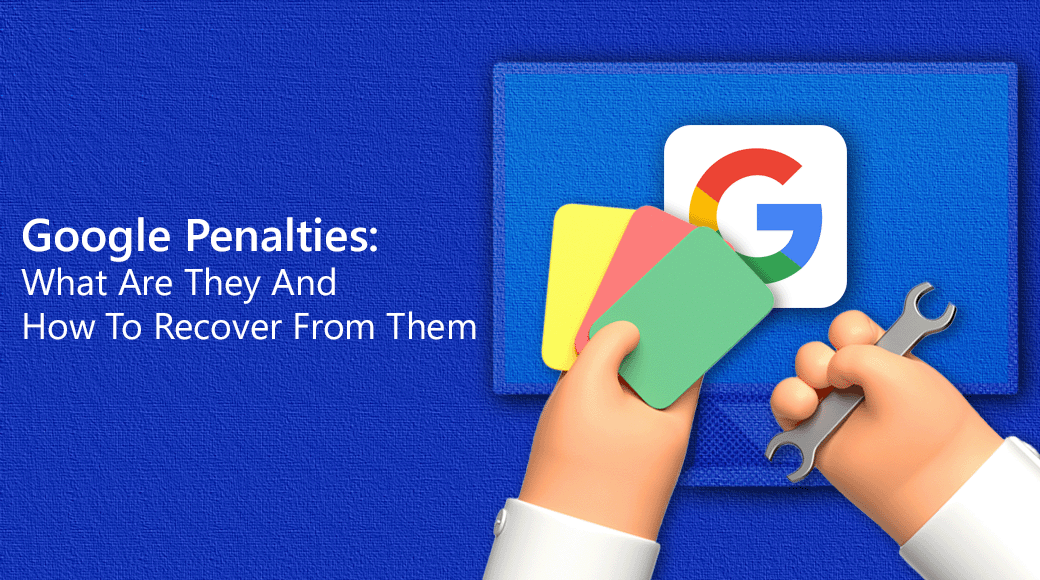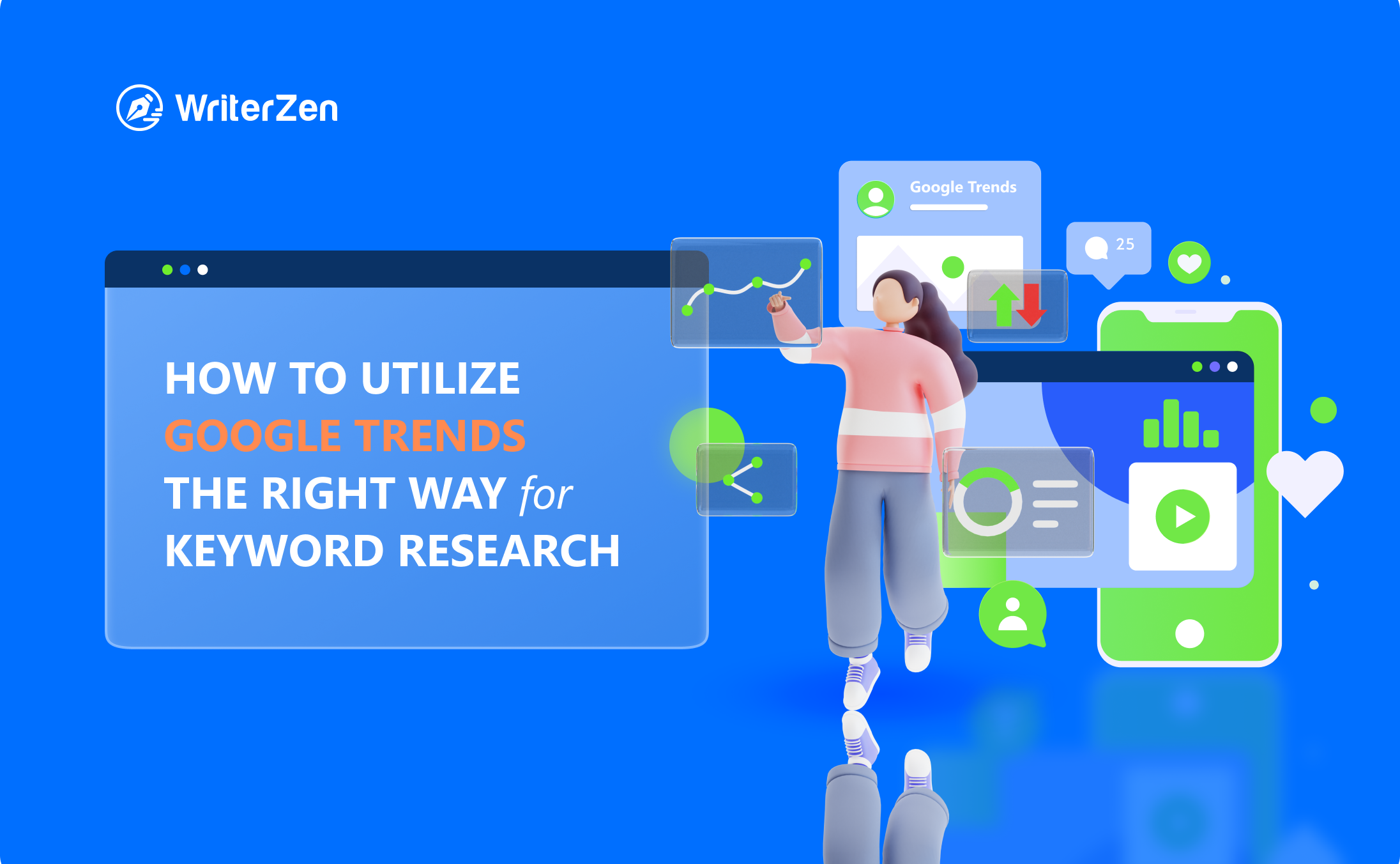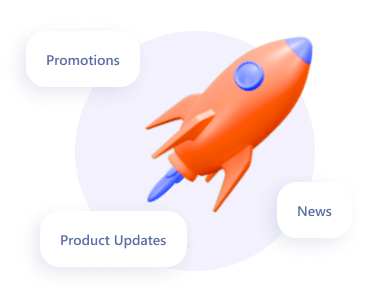If there is anything you can count on in the SEO industry, there will always be changes to Google’s algorithm. While it can be tiring to keep chasing after the updates, it’s essential to understand the elements that directly affect your website ranking.
Google NLP is one of those factors.
This article will highlight what you need to know about Google NLP, how to utilize it for your SEO content strategy, and the correlation between NLP and AI.
What Is NLP?
NLP is an abbreviation for Natural Language Processing and is a field of one of the most revolutionary fields of artificial intelligence (AI) and computer science.
Natural Language Processing allows computers to read and understand human language, which means with the use of NLP, computers will not just be able to make sense of the text written, but they can also derive meanings from it. Computers can identify patterns and the context of the information given, taking AI and computer science to the next level.
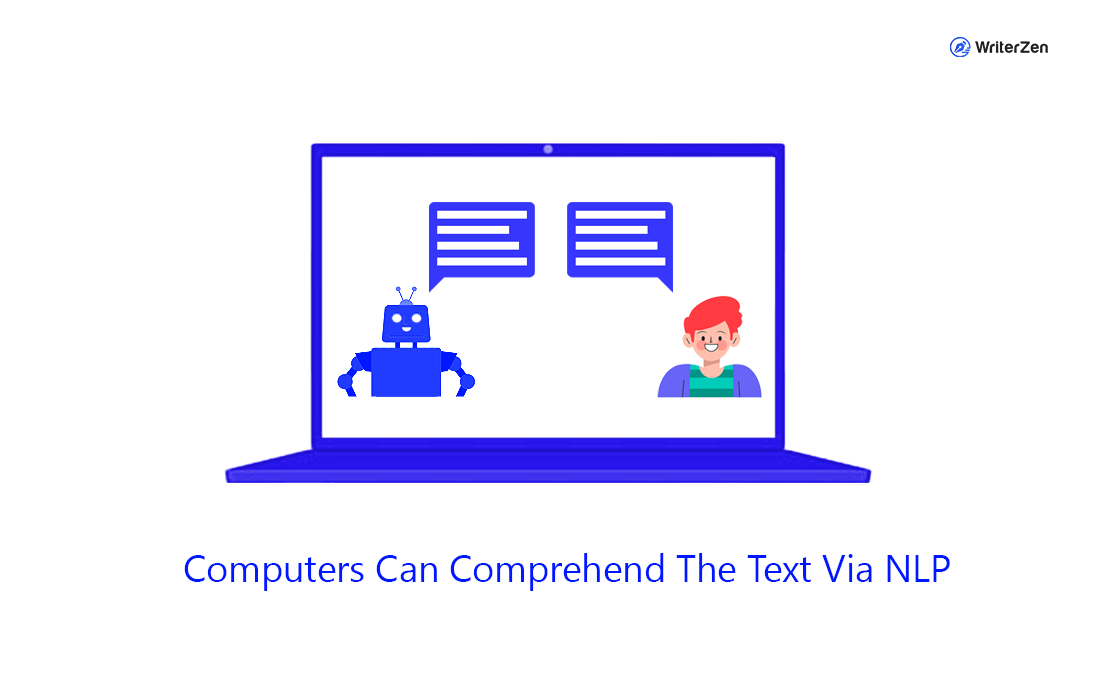
Whether you have heard about NLP before or this is a new concept, it might surprise you just how much everyday technological applications use NLP.
A good example includes spelling and grammar tools. These programs can ensure the correct spelling and grammar and even suggest different wordings for a specific tone of voice. To be able to do this, the computer has to make sense of the text to ensure the correct edits are made.
How Does NLP Work?
Now that you have a better idea of NLP, let’s focus on exactly how Natural Language Processing works to understand human language.
Once a computer receives text information from the user, the text is divided into segments which help the computer system make sense of the structure and context of the sentence. The computer does this by utilizing pre-processing tools to deconstruct, making the data readable and understandable.
After data has been pre-processed, it will be inputted into an NLP algorithm for the next stage. There are two types of NLP algorithms commonly used to interpret human language by a computer system, including machine learning and rule-based approach algorithms.
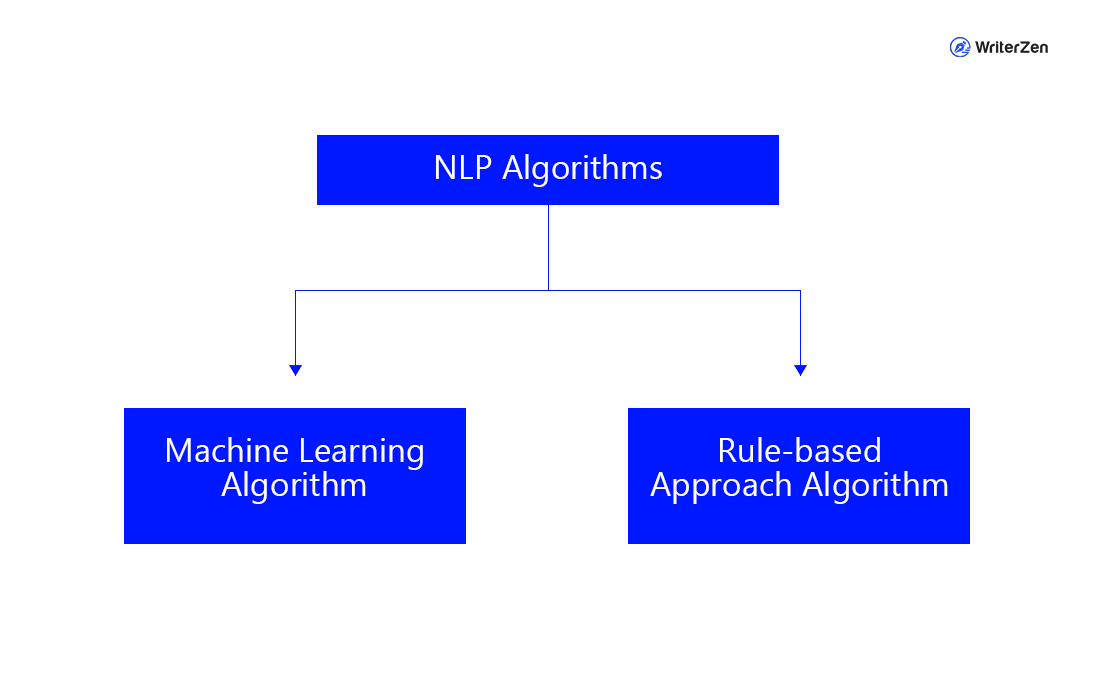
Machine learning algorithm consists of machine learning models and training data to help the system make sense of a text and learn how to comprehend it. The training data allows the computer systems to learn how to complete specific tasks.
The second NLP algorithm is the rule-based approach. There are different grammatical rules the computer systems depend on. These are then applied to the text the computer is trying to understand.
Types of NLP Tasks
NLP tasks consist of various semantic and syntactic analysis tasks, which are used to comprehend the meaning of the text.
The syntactic analysis focuses on identifying relationships between words. At the same time, semantic analysis is usually considered the more difficult section of NLP and focuses on recognizing the meaning of language.
The NLP semantic and syntactic tasks are listed below:
-
Tokenization: This task involves the semantical deconstruction of words which are referred to as tokens. Tokens are divided by blank spaces.
Take a look at this text: “Delivery service in the United Kingdom receives many terrible customer complaints”. It can be simplified by word tokenization: “Delivery service” “in” “the” “United Kingdom” “receives” “many” “terrible" “customer” “complaints”.
-
Lemmatization and stemming: For a computer system to understand the meaning of words, it converts them back to their original form or the word used in the dictionary. In this task, lemmatization takes account of the context to identify the correct meaning of the word, whereas stemming does not take context into account.
This is how the lemmatization changes the text from “The mousetrap caught four mice yesterday" to “The mousetrap catch 4 mouse yesterday". You can see the change of the word “caught," “four," and “mice."
Meanwhile, stemming refers to the root form of the word. For instance, “support” is the root form of “supportive,” “supporter,” “supporting,”...
-
Name Entity Recognition (NER): This popular semantic analysis NLP task involves taking out specific details from a text, including names, locations, organizations, and more.
For example, in the text “Leffe Beer is sold widely in the United Kingdom,” the name of the beverage (Leffe Beer) is related to a place (the United Kingdom) by the semantic category “is sold widely in.”
-
Part-of-speech tagging (PoS): It involves labeling a specific speech group as a token of a text. Speech groups can include nouns, pronouns, adjectives, prepositions, and more. PoS is a tagging system that allows the computer to recognize relations between words.
Here is an example: “Delivery service”-Noun, “in”-Preposition, “the”-Define article, “United Kingdom”-Noun, “receives”-Verb, “many”-Indefinite adjectives, “terrible"-Adjective, “customer” “complaints”-Noun.
-
Constituency parsing: This is a visual task that focuses on the terminal and non-terminal units elated to words.
-
Dependency praising: It identifies the relationships between words in a sentence to figure out how these words are connected to make sense of the sentence’s syntactic structure.
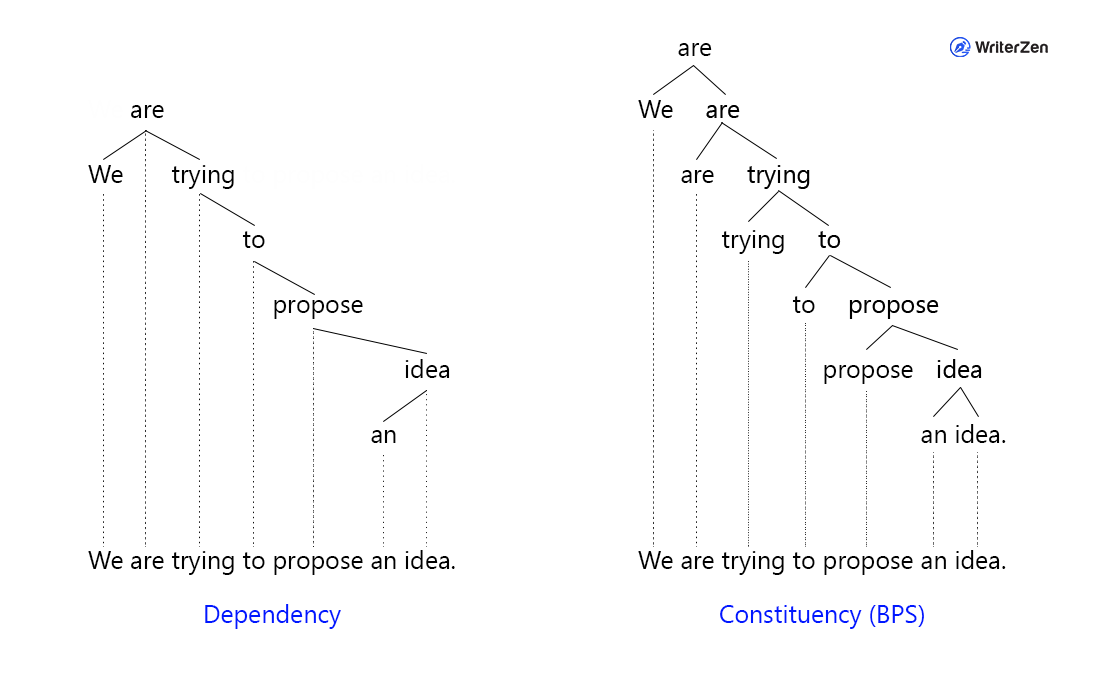
-
Text classification: It involves organizing text into categories by using tags and making sense of the meaning of unstructured sentences.
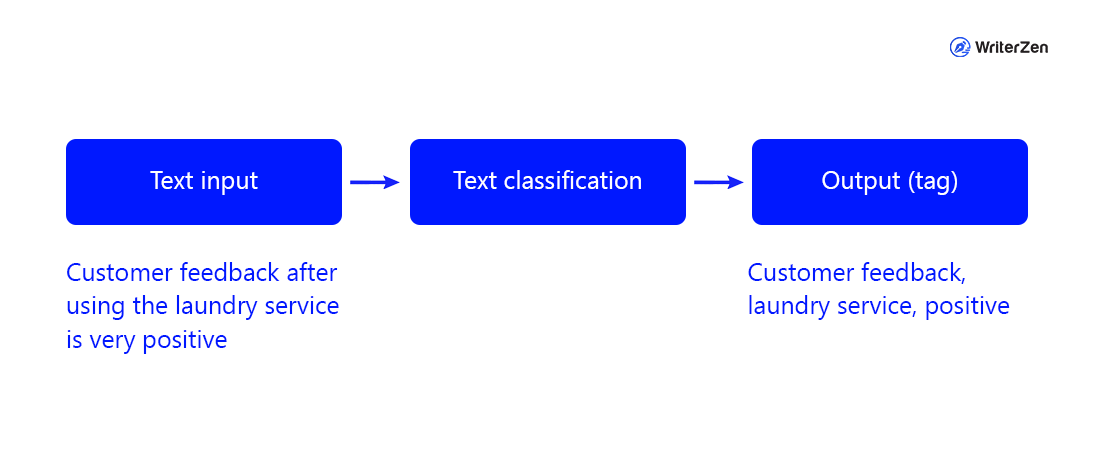
-
Word sense disambiguation: It recognizes that words have different meanings in certain contexts. This test uses a knowledge-based or supervised approach to word sense disambiguation to understand the meaning of specific words.
For instance, the word “book" in “You have to book a table for dinner in advance" and “You should pay for the book that you lost as soon as possible" has two different meanings. To recognize the proper meaning, the supervised approach is applied.
What Is Google Natural Language Processing Algorithm?
Even though Google has been using NLP since 2011, only in 2019 was Google NLP integrated into the search engine. This algorithm was named BERT. BERT, an acronym for Bidirectional Encoder Representations from Transformers, is the first Google NLP system.
BERT was then followed by a more advanced Google NLP system referred to as SMITH in 2020. SMITH is an acronym for Siamese Multi-depth Transformer-based Hierarchical, which provides users with faster and higher quality search results. SMITH allows Google to comprehend longer pieces of content at a faster rate, providing better search results for its users.
While BERT was a great Google NLP that could understand the context of words to provide a better search result, as mentioned above, SMITH is a much more advanced Google NLP.
One of the ways that set these two NLP algorithms apart is the number of tokens identified in documents. BERT could deconstruct a maximum of 512 tokens of a text, whereas SMITH could deconstruct a maximum of 2248 per text. Meaning SMITH can gain a more in-depth understanding of the text than BERT.
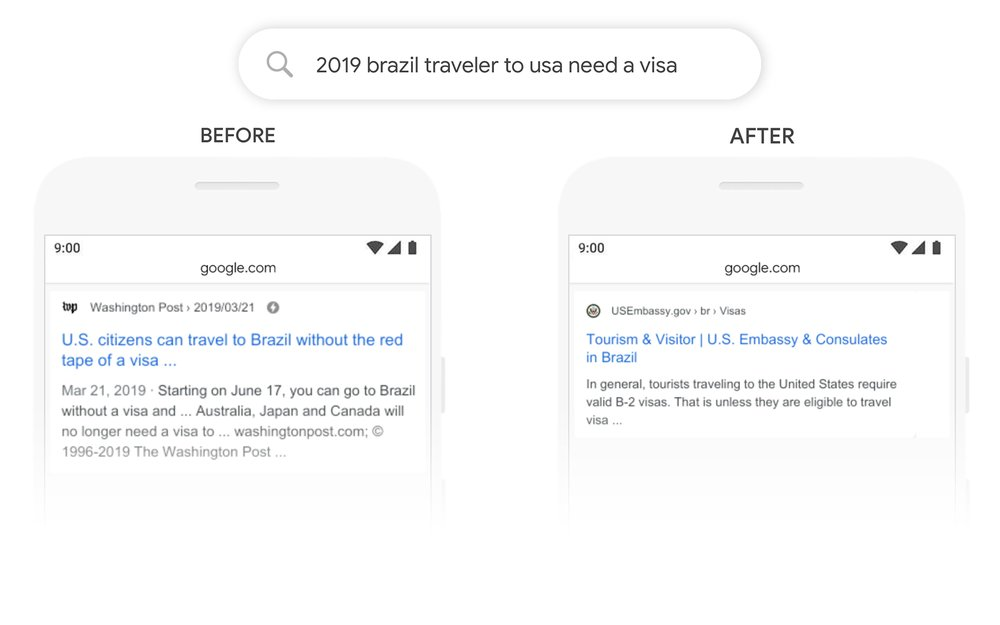
How Does NLP Impact SEO?
NLP is a game-changer for an SEO strategy. After all, the main aim of SEO is to improve a website’s visibility and engagement. For the search engine to rank a website, the content must be high quality and relevant to the user’s search terms.
Search engines would be unable to understand websites relevant to users’ search texts without using NLP. NLP gives Google an in-depth understanding of what users are searching for and what websites are talking about, allowing it to find the most relevant websites for users.
This is why it’s important to ensure your websites are NLP friendly to improve the chances of the website ranking on the search engine.
How NLP Can Improve an SEO Strategy
An effective SEO strategy will not only improve the chances of ranking on Google but also improve the website’s traffic. If you want to ensure that your website has great SEO, it is important to ensure that NLP is integrated into your SEO strategy. There are several ways an NLP will improve a website’s SEO strategy. A few include:
Relevant Search Results
One of the best features of NLP is that it allows users to view the most relevant websites of their SERP based on the topic in their search bar. If your website content matches the user’s search terms, you have a higher chance of ranking on the SERP.
As a result, your website will generate more traffic and become more visible to the users, ultimately improving your SEO performance.
Targeting Topic Clusters
NLP allows a search engine to gain a more in-depth understanding of the topic and different websites' intentions. While keywords are still important in SEO and play a role in NLP, the search engine can understand what pieces of content are about without using specific keywords.
This allows search engines to gain insight into topic clusters leading to more accurate search results. Internal link building is another reason why NLP improves a website's SEO strategy because it means that by providing relevant quality content, your website has a higher chance of ranking.
Redirection for Errors
While this feature may only be available for certain websites, specifically websites that are built around a specific topic, it allows users to be redirected to other pages when receiving an error message.
Usually, when this happens, users simply exit the page and visit an alternative page that will most likely be your competitor. However, with the NLP application, certain websites can redirect error websites using entity de-referring.
Artificial Intelligence and National Language Processing
NLP is a field of AI.
AI involves the use of complex logic and methods that are utilized to achieve completing tasks in the best possible. It has been integrated into various fields, including business, education, finance, healthcare, and more.
Examples of AI include machine learning, automation tools, machine learning, and robotics.
There have been several advancements in AI technology, and one of those includes the integration of NLP. The Engineering Director of Google, Ray Kurzweil, has stated that by 2029 AI technology will be able to “achieve human levels of intelligence.”
One of the features of NLP that sets it apart from the previous types of AI is the use of deep learning, making it possible for computers to simulate humane intelligence.
AI writing assistants are a popular application to scale content production while keeping quality. These programs allow users to improve their writing by boosting them in content creation, editing, and more. They help generate relevant content for the writer’s specific tone of voice, which is a game-changer for writers.
Final Thoughts
Natural Language Processing has been a huge advancement in technology, the methodology is a part of computer science, and AI has made significant changes in the SEO industry. NLP allows computer systems to understand and comprehend human language deeply.
The most recent Google NLP algorithm, SMITH, has improved the SERP for users, which is an important factor to implement in an SEO strategy. NLP allows search engines to provide more accurate and relevant results for users because it is able to understand what users are searching for and rank the websites that are most relevant to these searches.
Now that you understand the importance of NLP and how it will improve your SEO strategy. Don’t wait any longer. Develop your content plan and level up your website.


